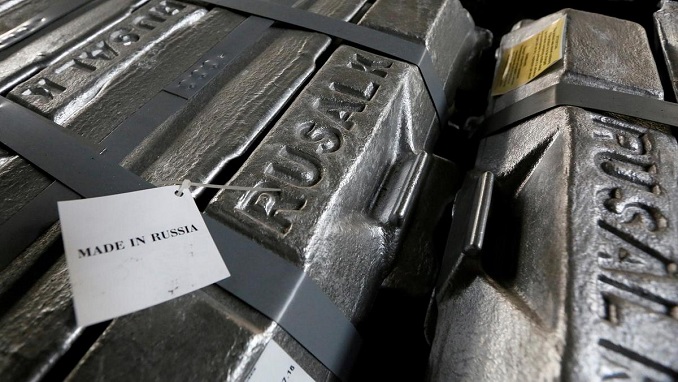Rusal registered a $124 million loss in the first half of the year due to low aluminum prices. The earnings before interest, taxes, depreciation, and amortization (EBITDA) more than halved to $219 million, Kommersant reported.
Rusal’s results increase the company’s need to receive dividends from its stake in Norilsk Nickel and thereby exacerbate the conflict with Norilsk Nickel’s largest shareholder, Interros, Vladimir Potanin.
Interros said on August 12 that the aluminum company was unable to create a sustainable business model that would be competitive in the global market and get off the dividend needle.
At the end of the half-year, Rusal reported a decrease in EBITDA to $219 million from $528 million and total revenue to $4 billion from $4.7 billion compared to the same period in 2019, according to IFRS statements. The reason for this is the fall in the price of aluminum on the LME by 12.8%, to $1.5 thousand per ton from $1.8 thousand a year earlier.
The decline in prices was partly offset by a reduction in production costs to $1,500 from $1,600, a weakening of the ruble and a drop in oil prices. However, the net profit of $625 million in the first half of 2019 was replaced by a loss of $124 million.
Rusal CEO Yevgeny Nikitin said the industry is slowly recovering from the coronavirus pandemic. Industry is also faced with growing environmental demands, he said, which requires an appropriate response. “Consumers and the investment community expect industry to take decisive steps to address the threats we face. The need to reduce emissions will be a priority after the end of the pandemic,” he said.
The conjuncture for Rusal remains weak. According to the JP Morgan Global Manufacturing PMI, business activity in the global industrial sector continues to decline, albeit at a slower pace than in the first half of the year. In the first half of 2020, global demand for primary aluminum decreased by 6.6% on an annualized basis to 30.3 million tonnes.
The demand for products worldwide, excluding China, decreased by 15.4% – to 12.3 million tons, while the level of demand in China itself remained practically at the same level – 18 million tons, the company said in a report. In addition, there is an oversupply of aluminum in the world market in the amount of 1.8 million tons, which also affects prices.
Rusal’s poor financial results are playing into the hands of Vladimir Potanin, who does not consider it necessary to renegotiate the shareholder agreement to manage Norilsk Nickel. Interros of Vladimir Potanin owns about 34% of shares in Norilsk Nickel, Rusal, whose founder is Oleg Deripaska, – 27.8%, Crispian of Roman Abramovich and Alexander Abramov – 4.2%.
Interros said on August 12 that Rusal’s financial performance did not give “cause for optimism.” Over the past five years, the company’s operating expenses have grown by 30%, while EBITDA has fallen by half, to $1 billion.
“Without Norilsk Nickel’s dividends, Rusal’s cash flow from its own business does not cover its expenses. Contrary to its statements, Rusal does not invest the dividends received from Norilsk Nickel into the Russian economy, and a significant part of them goes to payments to banks on loans,” Interros said in a statement. They also conclude that Rusal is using the oil spill near Norilsk to conclude a new shareholder agreement on Norilsk Nickel.












